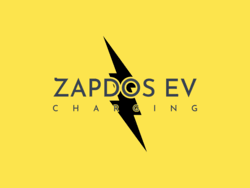As an eco-conscious homeowner or business operator, you may be contemplating an electric vehicle. A key question then becomes, how will I charge it? Having accessible charging is essential to keeping an EV powered without hassles or delays.
Modern charging equipment makes topping off an EV battery easier than ever, yet not all chargers are created equal. There are significant variations in terms of charging speed, power requirements, connector type and capabilities between different available chargers – we will discuss some common types of EV chargers here as well as any necessary infrastructure requirements in this article. Learning which specifications must be met in order to power Level 1, Level 2, and fast charging solutions helps determine which options make sense at your location.
Chargers Fall into Three Main Power Levels
Level 1 charging methods use standard 120V household outlets and will take 10+ hours of gradual charging time with new EVs with faster 3-10 hour battery charging requiring hardwired equipment installation of a 240V circuit. Commercial DC fast charging from high-powered ports along highways provide up to 80% charge in 20-40 mins!
As a homeowner considering an electric vehicle (EV), Level 2 charging equipment capable of fully recharging overnight is typically most suitable. To achieve this result, an electrician needs to be hired in order to set up a dedicated 240V outlet that meets charging needs.
Connectors and protocols used by chargers vary as well, including J1772 as the standard North American Level 2 connector, CCS for combined fast charging of both level two and DC fast charging, CHAdeMO for fast DC fast charging popular among Asian automakers, and Tesla Supercharger network for ultra fast charging.
Make sure any home chargers installed match the charge port on your EV model; all support J1772 but only some use CCS or CHAdeMO.
Level 1 Charging with a Standard 120V Household Outlet
This method requires no special electrical work – simply plugging your portable plug into any indoor or outdoor 120V outlet provides 2-5 miles per hour in charging capacity.
Level 1 charging works more slowly than Level 2, taking several days to fully replenish an empty EV battery from zero. Therefore, it should only be used for minor daily charging needs or as a back up system to faster Level 2 systems for homeowners; long multi-day charges using household outlets would not be suitable.
Level 2 Charging With 240 Volts
Level 2 Charging with a 240V Circuit for daily home charging of an EV overnight requires specialized Level 2 equipment capable of fully recharging it overnight. To accomplish this effectively, it requires hiring an electrician who will dedicate an entirely separate 240V circuit specifically to its use by an EV charger.
The 240V current allows between 10-20 miles range per hour charging–perfect for replenishing commutes and errands in an evening without needing public infrastructure. Installation involves running wire to an easily accessible garage or carport mounting location from your household electrical panel and installing a dedicated 40-60 amp circuit breaker that safely delivers enough power.
Home electrical systems typically provide up to 80 amps at 240V for use by large appliances like ovens and water heaters, but by diverting 40 amps overnight from these outlets to an EV charger it allows full charging capabilities for most models within 8-10 hours without overburdening capacity.
Level 3 Charging
DC Fast Charging Requires 60A Circuit Minimum. Due to high electricity needs, home DC fast charging would start with a 60 amp minimum circuit with up to 19kW power levels – providing over 44 miles of extra range every hour!
Home DC fast charging would offer comparable convenience to traditional petrol vehicles in just 20-40 minutes for 80 percent battery charge, although power requirements require industrial grade setups with 100-400 amp electrical panels. As vehicles and charging equipment advance further, residential applications could become feasible over time.
Plan Your Needs
When assessing home EV charger installation needs, take into account your typical daily driving patterns, trip lengths and best times for overnight charging. Understanding your household electrical capacity and circuit requirements to deliver needed power levels helps identify optimal charging solutions – with fast charging speeds available as part of an expanding public infrastructure network, convenient electrified transport awaits!
Location Convenience
Carefully consider where your home charger should go for residential charging! Ensure it can easily plug in from your driveway or garage without crossing walkways or stringing extension cord hazards, for easy and consistent charging. Access to a 240V circuit will determine suitable mounting spots.
